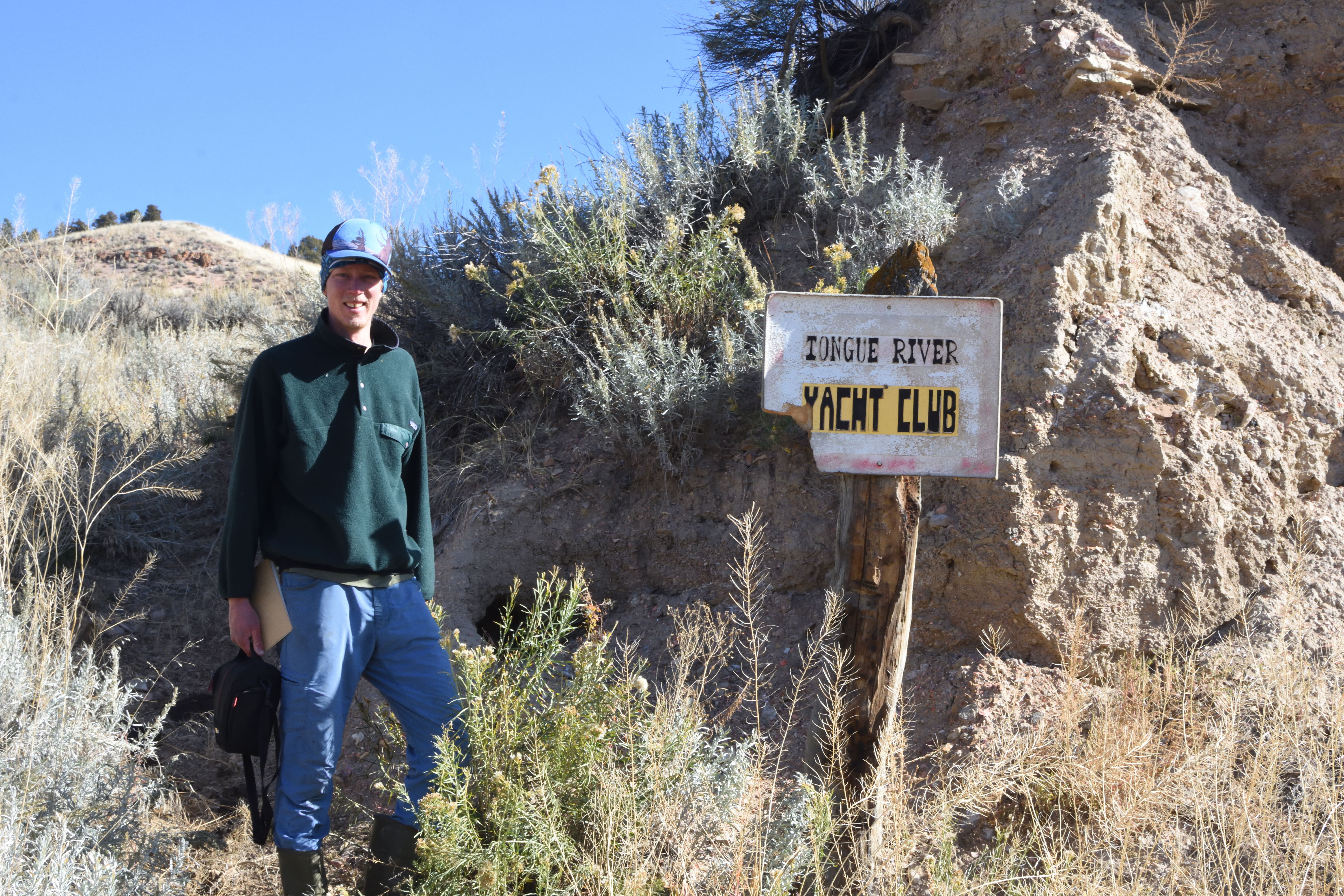
Towering yellowed Cottonwoods loom above me, filtering the sunlight through their dancing leaves so that amber light ripples across my hands and face. The world is completely silent except for the sweet song of the wind and the gentle rhythm of paddles dipping into the cool, calm waters of the Tongue River. Not a single cloud touches the cerulean sea of sky. Here, there is a sense of serenity pumping through my veins and it seems the same for those around me (except maybe not for Clark). Something is uniquely beautiful about this small, meandering prairie river and its arid valley of a home; we all know it and feel it with every new bend and riffle.
John Hamilton, a farmer in the Tongue River Valley says, “People think of eastern Montana as a wasteland. They don’t realize what we have down here.” John is right… they don’t.
Never have I seen the moon so bright, the sky so frighteningly big, the earth so calm, and so fierce as I have here on the prairie in eastern Montana. There really is not a word to describe it correctly. And yet, this landscape has long been ignored because this area, the Tongue River Valley, and the rest of the bioregion is “East of Billings.”
People are funny things. We have this weird conception that some places in this world are better than others, that there are places on this earth that people deem worthy of every environmental preservation regulation in the book, and that there are places that are only worthy of being toxic waste dumps because of they lack our conventional view of beauty. Flora and fauna do not have this insane bias. They live and grow where they can live and grow. Sagebrush grows on the prairie because that is where it can exist, not because it is more beautiful than other biomes or other biomes are more beautiful than it.
Humans do not do this. We exist, or want to exist, in places that we have socially constructed as being beautiful: mountains, oceans, vast deserts, lakes, and rivers. This construction has caused us to live within a specific paradigm: wasteland vs. Eden.
I’m tired of our society viewing some land as waste, as a place that can be ruined in order to preserve other “prettier” places. No land is wasteland. It has value. There is value to the people that call it home and to the people who once called it home; there is value to the fauna; there is value to the flora. And, no matter where you go, you can find beauty in a place. Maybe it is the way that the sun hits the horizon line every sunset, or how the rain gently falls into the caressing earth, or how the earth tucks itself into bed every night. No place’s value should be determined by its beauty, or really be given a value at all. All places are beautiful and valuable in their own unique way.
The Tongue River Valley is threatened with potential coal development, something that will irrevocably alter the landscape, likely in an unfavorable way. Yet, the coal developers and the state of Montana do not seem to care, because the Tongue River Valley is “East of Billings,” a wasteland. To reiterate John Hamilton, “They don’t realize what we have down here.” If they did, they being the government of Montana, coal development would not even be considered. This place is too precious, too remarkable. And yet politicians and bureaucrats think that the Tongue River Valley and eastern Montana is an unpopulated, flat landscape. Which it is; but it is also so much more.
And so we need to change our worldview of land. No land is meant for waste. All land is worthy of existing in its most natural, or healthiest state. Mentalities like “East of Billings” cannot exist. Otherwise, our earth will be destroyed, since we will not properly take care of all of her land.
Wherever you go, look for those moments like those I had on the Tongue: the sunlight rippling across my skin, the quiet voice of the wind, the soaring trees up overhead. Find these precious observations and hold onto them, because they will make you realize that no land is wasteland.